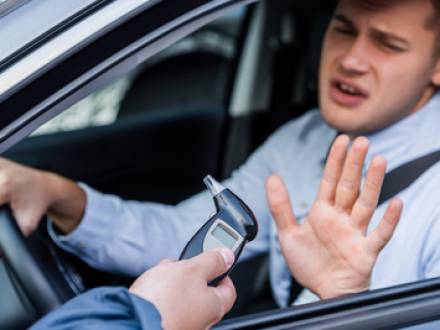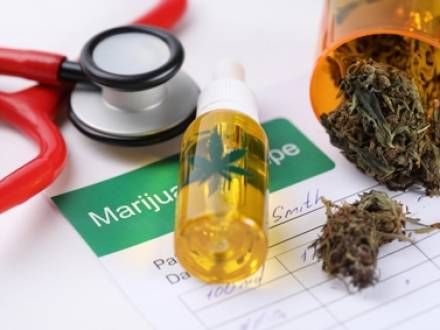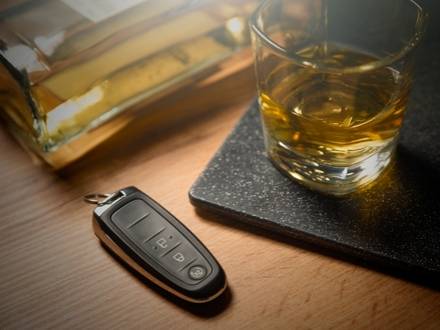Recent Blog Posts
Can I Drive While My DUI Case Is Pending?
 If you were arrested for DUI in Montgomery County in 2026, one of your first concerns is probably whether you can still drive. After all, you still need to get to work, take your children to school, and handle everyday responsibilities. The answer depends on several factors, including whether you took a breath test, the results of that test, and whether you requested a hearing with the Maryland Motor Vehicle Administration.
If you were arrested for DUI in Montgomery County in 2026, one of your first concerns is probably whether you can still drive. After all, you still need to get to work, take your children to school, and handle everyday responsibilities. The answer depends on several factors, including whether you took a breath test, the results of that test, and whether you requested a hearing with the Maryland Motor Vehicle Administration.
Our Silver Spring criminal defense attorney helps our clients get through the legal system with warmth and compassion while fighting for the best possible outcome. Call us today at 301-589-9500.
What’s the Difference Between Expungement and Record Sealing in Maryland?
 A criminal record can follow you for years, affecting your ability to get a job, a place to live, and even earn professional licenses. Even if your case was dismissed or you were found not guilty, the arrest and charges may still appear on background checks.
A criminal record can follow you for years, affecting your ability to get a job, a place to live, and even earn professional licenses. Even if your case was dismissed or you were found not guilty, the arrest and charges may still appear on background checks.
Fortunately, Maryland law has two ways to clear criminal records: expungement and record sealing. Many people use the terms expungement and sealing interchangeably, but they are not the same thing under Maryland law. Each option has different eligibility requirements, different effects, and different processes.
If you are considering trying to clear your criminal record in 2026, a Silver Spring criminal defense lawyer can help you determine which option is right for your situation.
When is DUI a Felony in Maryland?
Driving under the influence is a serious offense in Maryland. Understanding the circumstances that make driving under the influence chargeable with felony-style penalties is important not only for drivers in the state but also for anyone charged with DUI.
Several factors can lead to felony-level DUI charges, including:
-
Having a child passenger
-
Repeat offenses
-
High-BAC DUI situations
It is important to note that while Maryland technically categorizes few DUI offenses as felonies, many factors can lead to enhanced or aggravated DUI charges with felony-level punishments. These are typically described as felony DUIs. Regardless of whether you are facing misdemeanor or felony DUI charges, the Silver Springs DUI defense attorney at The Law Offices of Gerstenfield & Demirji, PC. can help you fight the charges and protect your freedoms.
How Accurate Are Field Sobriety Tests?
 Maryland law enforcement uses standardized field sobriety tests during DUI investigations. They are not perfectly accurate and are affected by many factors unrelated to alcohol or drugs. Officers use them to make decisions, but the tests are not scientific proof of impairment. They are often administered quickly, late at night, and under pressure. A Montgomery County, MD DUI defense lawyer can help explain what these tests are meant to show and how much weight they actually carry.
Maryland law enforcement uses standardized field sobriety tests during DUI investigations. They are not perfectly accurate and are affected by many factors unrelated to alcohol or drugs. Officers use them to make decisions, but the tests are not scientific proof of impairment. They are often administered quickly, late at night, and under pressure. A Montgomery County, MD DUI defense lawyer can help explain what these tests are meant to show and how much weight they actually carry.
What Are Field Sobriety Tests and Why Are They Used?
Field sobriety tests are physical and mental exercises given during a traffic stop. They are not required by Maryland law, but they are commonly used. Officers use them to observe balance, coordination, and the ability to follow instructions. They are meant to help an officer decide whether there is probable cause to make an arrest.
Heat-of-Passion Manslaughter in Maryland Domestic Cases
 Domestic arguments can escalate quickly because emotions run high. However, not every emotional reaction supports a "heat-of-passion" manslaughter charge, even though Maryland prosecutors look to this charge as one that falls between accidental harm and intentional murder. Determining whether someone acted in the heat of passion may require assessing whether there was sufficient provocation and a sufficient cool-off period.
Domestic arguments can escalate quickly because emotions run high. However, not every emotional reaction supports a "heat-of-passion" manslaughter charge, even though Maryland prosecutors look to this charge as one that falls between accidental harm and intentional murder. Determining whether someone acted in the heat of passion may require assessing whether there was sufficient provocation and a sufficient cool-off period.
In some cases, the State may stretch the facts a bit to fit the charge; however, courts have recently begun tightening the rules on what constitutes adequate provocation. Body-cam footage may help or hurt a defendant’s case when heat-of-passion is claimed. Because there are numerous variables and situations that may be unclear, charging decisions can be materially altered by an unwarranted belief made without context. If you have been charged with heat-of-passion manslaughter, the sooner you speak to a knowledgeable Silver Spring, MD criminal defense lawyer, the better your chances for a positive outcome.
The Hidden Risks of Refusing a Breath Test in Maryland
 Most Maryland drivers believe that refusing a breath test will actually protect them in a DUI case. After all, agreeing to a breath test only provides information that could convict you of DUI. While it is easy to see how this belief can make sense, under Maryland’s updated 2024 implied consent rules (Maryland Transportation Code Section 16-205.1), refusing a breath test can cause more damage than the arrest itself.
Most Maryland drivers believe that refusing a breath test will actually protect them in a DUI case. After all, agreeing to a breath test only provides information that could convict you of DUI. While it is easy to see how this belief can make sense, under Maryland’s updated 2024 implied consent rules (Maryland Transportation Code Section 16-205.1), refusing a breath test can cause more damage than the arrest itself.
Maryland has some of the harshest refusal penalties, including mandatory ignition interlock requirements, harsh license suspensions, and a paper trail prosecutors can use to argue "consciousness of guilt." In some cases, refusing a breath test can lead to worse outcomes than blowing over the legal limit. Speaking to a Montgomery County, MD DUI lawyer is the best step you can take to limit the adverse consequences of a refusal to blow and DUI charges.
How Far Is Too Far? DNA and Privacy in Maryland Homicides
 Twenty-seven years after a nurse was killed in a Maryland hospital, a suspect was identified through genetic genealogy – matching a killer’s DNA to a relative on a genealogy site like Ancestry. The nurse’s murder was one of the oldest violent crime mysteries in Prince George’s County, although cold case detectives continued to interview witnesses and track down leads. In the last five years, the killer’s DNA led the detectives down the genealogy path, which led to a match with the nephew of the killer.
Twenty-seven years after a nurse was killed in a Maryland hospital, a suspect was identified through genetic genealogy – matching a killer’s DNA to a relative on a genealogy site like Ancestry. The nurse’s murder was one of the oldest violent crime mysteries in Prince George’s County, although cold case detectives continued to interview witnesses and track down leads. In the last five years, the killer’s DNA led the detectives down the genealogy path, which led to a match with the nephew of the killer.
Genetic genealogy databases are increasingly being used, but can be controversial. By tracing partial DNA matches uploaded by relatives to consumer sites like Ancestry and 23andMe, investigators can crack old cold cases. However, this practice has raised some serious ethical and constitutional concerns. Is law enforcement building family-wide genetic "dragnets" with no consent?
Maryland’s Next DUI Frontier: Remote or Self-Driving Cars
 As self-driving and remotely operated vehicles become increasingly common, Maryland law faces a question that was likely never imagined. Can a person be charged with DUI if he or she was not physically driving the car? Although technologies like Tesla’s Autopilot and remote car apps promise safety and convenience, they also blur the definitions under the law (Maryland Transportation Article Section 21-902) of "operating" a vehicle.
As self-driving and remotely operated vehicles become increasingly common, Maryland law faces a question that was likely never imagined. Can a person be charged with DUI if he or she was not physically driving the car? Although technologies like Tesla’s Autopilot and remote car apps promise safety and convenience, they also blur the definitions under the law (Maryland Transportation Article Section 21-902) of "operating" a vehicle.
While prosecutors continue to test whether "actual physical control" applies to drivers who engage automation features or start a car remotely, defense attorneys will be forced to find ways to defend drivers who were not actually driving, yet have been charged with DUI. If you should find yourself in a situation where you were not actually driving your self-driving car, yet you are being charged with DUI, consulting with an experienced Montgomery County, MD DUI lawyer should be your very first step.
You Slept It Off—But Are You Still Legally Drunk?
 Most of us believe that if we come home after having a few drinks with friends and get a good night’s rest, we are safe to drive the next morning. However, under Maryland law, this may not always be the case. It can be shocking to be charged with a "morning after" DUI, which carries the same penalties as being pulled over the night before.
Most of us believe that if we come home after having a few drinks with friends and get a good night’s rest, we are safe to drive the next morning. However, under Maryland law, this may not always be the case. It can be shocking to be charged with a "morning after" DUI, which carries the same penalties as being pulled over the night before.
Whether your BAC remains above the legal limit or the residual effects result in an officer deeming your driving as impaired, you can be charged with a Maryland DUI (Section 21-902). If you are facing "morning-after" DUI charges or "standard" DUI charges, the immediate and long-term consequences can be severe, altering your ability to obtain employment or even to drive.
An experienced Silver Spring, MD DUI attorney can build a comprehensive defense on your behalf, working hard for the best possible outcome. This is not a time when you can defend yourself against DUI charges. A skilled DUI attorney knows the law relating to your charges and the best way to use the law to your advantage.
How Maryland Handles DUIs for Medical Marijuana Patients
 Maryland residents with valid prescriptions for medical marijuana may assume they are safe from DUI charges so long as they are using the drug legally, but this is not always true. While alcohol has a clear legal limit in the form of breathalyzer or blood BAC readings, there is no specific THC threshold for marijuana as it pertains to impaired driving.
Maryland residents with valid prescriptions for medical marijuana may assume they are safe from DUI charges so long as they are using the drug legally, but this is not always true. While alcohol has a clear legal limit in the form of breathalyzer or blood BAC readings, there is no specific THC threshold for marijuana as it pertains to impaired driving.
Practically speaking, this means that even if you are legally using marijuana and you do not believe you were driving erratically, the police and prosecutor can claim impairment and charge you with DUI (Section 21-902). Speaking to a knowledgeable Silver Spring, MD DUI lawyer who can help you understand the gap between medical marijuana laws and DUI enforcement can be beneficial.
What Are Maryland’s Medical Marijuana Laws?
Medical marijuana is governed by the Maryland Medical Cannabis Commission (MMCC). A medical marijuana card allows up to 120 grams of cannabis flower and/or 36 grams of THC in infused products. A qualifying patient may home-cultivate no more than four marijuana plants per residence.















